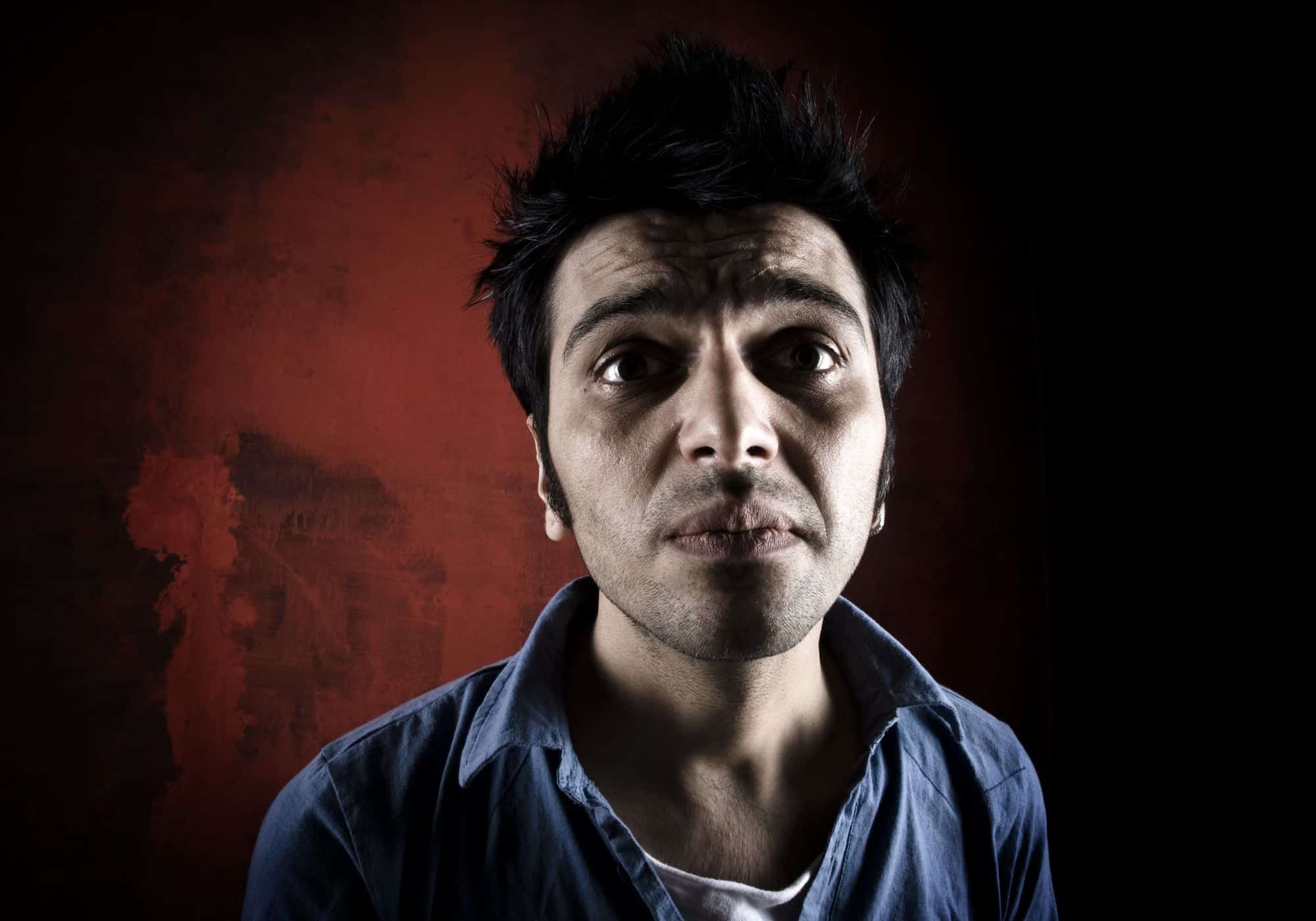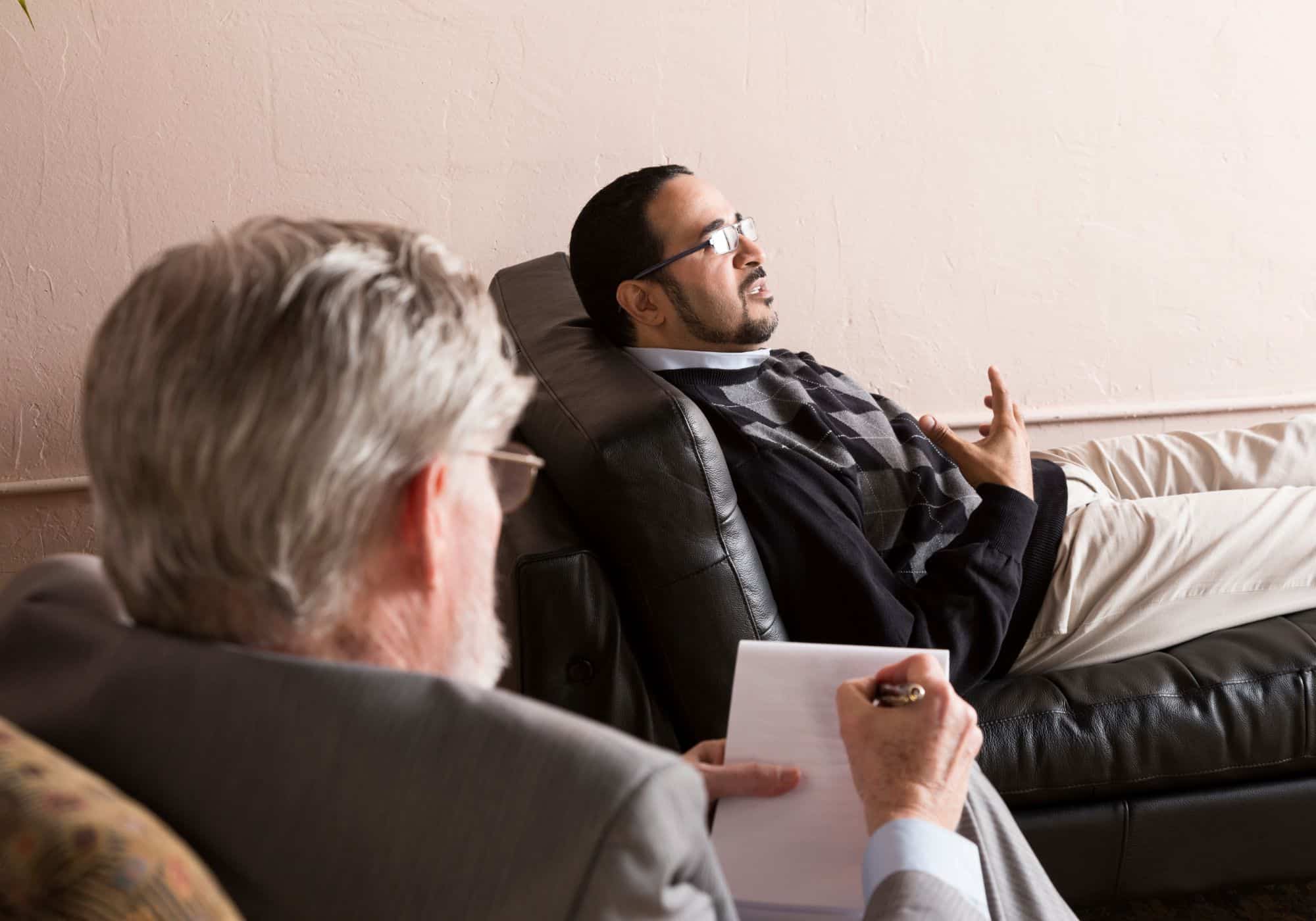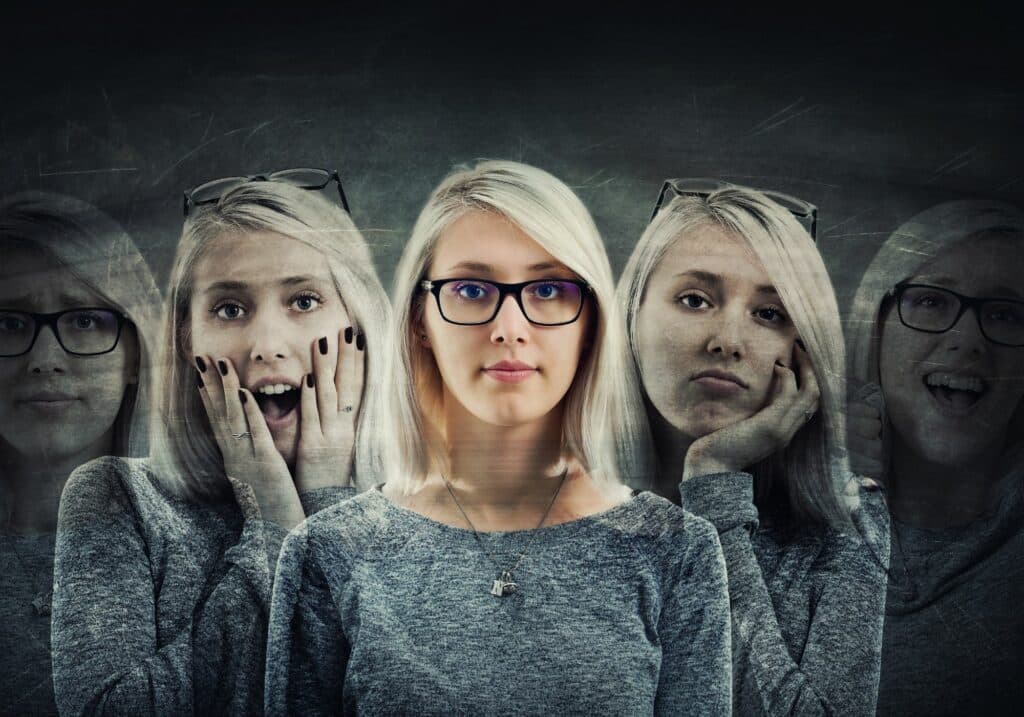Schizophrenia is a complex and challenging mental health condition that can significantly hinder a person’s ability to lead a fulfilling life. However, it’s important to remember that schizophrenia is manageable with proper treatment. At our schizophrenia treatment centers in Atlanta, individuals receive comprehensive care that can greatly enhance their well-being and overall quality of life.
Research from the National Institute of Mental Health (NIMH) highlights that schizophrenia is among the top 15 causes of disability worldwide. Additionally, NIMH studies reveal that in the United States, the life expectancy of those living with schizophrenia is, on average, over 28 years shorter compared to the general population. This underscores the importance of effective treatment and support for individuals with schizophrenia.
If you or a loved one is struggling with schizophrenia, don’t hesitate and call Hope Harbor Wellness to begin your schizophrenia treatment in Atlanta, GA.
What is Schizophrenia?
Schizophrenia, as defined by the National Alliance on Mental Illness (NAMI), is a chronic and serious mental health condition that significantly affects an individual’s behavior and ability to communicate effectively with others. This condition is a form of psychosis, characterized by erratic behavior, delusions, and intense paranoia. Those living with schizophrenia can potentially pose a risk to themselves or others, particularly if the condition remains untreated.
Approximately 1% of the population is affected by schizophrenia, with symptoms commonly emerging in late adolescence or early adulthood. This mental illness can manifest a variety of symptoms, including delusions, hallucinations, disorganized thinking, and abnormal behaviors. Individuals with schizophrenia may also struggle with depression, anxiety, and thoughts of self-harm.
Schizophrenia disrupts a person’s perception of reality and interaction with their surroundings. Beyond hallucinations and delusions, those affected may struggle with coherent thought processes and effective communication. These symptoms can significantly impair their ability to work, study, maintain relationships, and engage in a fulfilling, productive life.
Despite increasing awareness and understanding of mental health issues, stigma still surrounds schizophrenia, often due to the misunderstood nature of the behaviors associated with this disorder. This stigma can add to the challenges faced by those dealing with schizophrenia.
How is Schizophrenia Diagnosed?
Determining whether an individual has schizophrenia involves a meticulous diagnostic process, guided by the standards set out in the Diagnostic and Statistical Manual of Mental Disorders, Fifth Edition (DSM-5). To meet the criteria for a schizophrenia diagnosis, a person must exhibit specific symptoms for a minimum duration of one month. Additionally, these symptoms must significantly impair key areas of functioning, such as work, academic performance, interpersonal relationships, or daily living activities.
If you’re concerned that someone you know may be showing signs of schizophrenia, the first step is to arrange an evaluation with a healthcare professional, such as their primary care physician. Remember, unless you’re a qualified health professional, it’s not appropriate or possible to diagnose schizophrenia in a friend or family member.
A proper diagnosis requires a comprehensive assessment conducted by a qualified healthcare provider. This process often involves detailed interviews, medical history analysis, and sometimes, specific diagnostic tests. Early detection and diagnosis are crucial for effective management and treatment of schizophrenia. If you’re in doubt or need guidance, reaching out to healthcare professionals or specialized schizophrenia treatment centers like ours can be an invaluable step toward getting the help and support needed. Call us today to being your schizophrenia treatment in Atlanta, GA.

Signs and Symptoms of Schizophrenia
Schizophrenia is a complex mental health disorder that manifests through a variety of symptoms, making it one of the most challenging conditions to diagnose. Understanding the common signs and symptoms is crucial for recognizing the need for treatment and support.
Common Symptoms of Schizophrenia:
- Hallucinations: This includes seeing, hearing, or feeling things that aren’t present.
- Delusions: Strong beliefs in things that are clearly untrue or have no basis in reality.
- Disorganized Speech: Incoherent speech patterns, including illogical or unrelated responses during conversations.
- Catatonic Behavior: Lack of movement or communication, often appearing as unresponsiveness to the environment.
- Disorganized Behavior: Exhibiting behaviors that are inappropriate or lack clear purpose.
- Negative Symptoms: This includes a diminished ability to function normally, such as a lack of joy, withdrawing from social interactions, and general apathy.
It’s important to note that not everyone with schizophrenia will show all these symptoms, and the condition can affect individuals differently.
Behavioral Indicators for Schizophrenia Treatment:
- Mood and Emotional Changes: Drastic mood swings, unexplained anger or fear, and loss of interest in once enjoyable activities.
- Hallucinations: Experiencing sensory illusions that aren’t real, such as hearing voices or seeing things that aren’t there.
- Delusions: Holding false beliefs, such as thinking one has special powers or is being persecuted.
- Disorganized Speech and Behavior: Difficulty in coherent communication and engaging in bizarre or inappropriate actions.
- Social Withdrawal: Isolating oneself from social activities, leading to loneliness and isolation.
Physical Indicators Needing Schizophrenia Treatment:
- Changes in Appearance: Neglecting personal hygiene and grooming.
- Unusual Movements: Repetitive, odd physical movements, sometimes leading to self-injury.
- Sleep Problems: Insomnia or oversleeping, leading to fatigue and concentration issues.
- Lack of Emotional Expression: Difficulty showing emotions or inappropriate emotional responses.
- Sensory Disturbances: Experiencing hallucinations or delusions.
Understanding the Symptoms of Schizophrenia:
- Hallucinations and Delusions: Schizophrenia often involves a distorted perception of reality, leading to paranoia and sensory misinterpretations.
- Negative Symptoms: This term covers a decline in physical and mental abilities, impacting communication and daily functions.
- Cognitive Impairment: Schizophrenia can lead to memory and cognitive function decline, often resulting in anosognosia, a lack of self-awareness of the condition’s impact.
Recognizing these symptoms is vital for early intervention and treatment. Schizophrenia, while challenging, is a treatable condition. At our treatment centers in Atlanta, GA, we provide comprehensive care to help individuals with schizophrenia lead fulfilling lives, understanding the importance of addressing not only the disorder but also the accompanying mental health challenges such as depression and anxiety. If you or a loved one are showing signs of schizophrenia, don’t hesitate to call Hope Harbor Wellness to begin your schizophrenia therapy in Atlanta, GA.
Different Types of Schizophrenia
chizophrenia, once perceived as a singular condition, is now recognized as encompassing a spectrum of related disorders. Each type exhibits distinct symptoms and requires tailored approaches for management and treatment. Here’s a closer look at the main types:
Paranoid Schizophrenia: This form is primarily marked by hallucinations and delusions. Individuals with paranoid schizophrenia might harbor intense beliefs of being persecuted or monitored. They often hear non-existent voices or see things that aren’t real, leading to significant distress and a feeling of losing control over their thoughts and emotions.
Disorganized Schizophrenia: Characterized by jumbled thinking, speech, and behavior, this type can significantly hinder effective communication and comprehension of surroundings. Individuals may display erratic behaviors, such as inappropriate laughter or tears, making everyday tasks like work or social interactions challenging.
Catatonic Schizophrenia: This less common variant involves symptoms ranging from complete physical immobility to excessive, seemingly purposeless movement. Individuals might maintain unusual postures for extended periods or exhibit exaggerated flexibility or rigidity in their limbs, seemingly disconnected from their environment.
Undifferentiated Schizophrenia: When symptoms span multiple schizophrenia types but don’t align exclusively with any single category, a diagnosis of undifferentiated schizophrenia may be made. For instance, an individual might simultaneously experience symptoms characteristic of both paranoid and disorganized schizophrenia but not fully meet the criteria for either category.
Residual Schizophrenia: This term describes a state where an individual has a history of schizophrenia but is currently in a phase of remission. While the more prominent symptoms like hallucinations or delusions may have subsided, subtler signs such as diminished motivation or energy might persist.
Each type of schizophrenia presents unique challenges and nuances, necessitating a personalized and comprehensive approach to treatment and care. Understanding these distinct forms is critical for clinicians, patients, and caregivers alike in navigating the complex landscape of this mental health condition.

How Common is Schizophrenia?
Schizophrenia, while one of the less common mental health disorders, still affects a significant number of individuals globally and remains a focus of ongoing research within the mental health treatment community.
The World Health Organization estimates that around 23 million adults worldwide are living with schizophrenia. In the United States, the prevalence is about 1.2 percent, translating to approximately 3.2 million adults affected by this condition.
When compared to other mental health issues, the prevalence of schizophrenia in the U.S. is relatively lower. It occurs less frequently than disorders such as general anxiety disorder, social anxiety disorder, post-traumatic stress disorder, and depression. Despite its lower prevalence, schizophrenia is a complex and impactful disorder, necessitating continued research and specialized treatment approaches.
Causes of Schizophrenia
Schizophrenia, a complex mental health disorder, doesn’t have a single definitive cause. However, researchers have identified several potential factors that might contribute to its development:
Neurochemical Imbalance: An imbalance of certain chemicals in the brain, such as neurotransmitters like dopamine and glutamate, is thought to play a role in triggering schizophrenia.
Brain Development Issues: Complications during the development of the brain, either in the prenatal stage or in early childhood, might contribute to the onset of schizophrenia.
Neural Connectivity: Reduced or altered connectivity and communication between different regions of the brain are also considered potential triggers for schizophrenia.
Risk Factors for Schizophrenia
Several environmental and genetic factors have been identified that may increase the likelihood of developing schizophrenia:
Environmental Factors: Various environmental conditions, such as being born during the winter months, exposure to brain-affecting infections or autoimmune diseases, or experiencing prolonged, severe stress, have been linked to a higher risk of schizophrenia.
Prenatal and Birth Conditions: Complications during pregnancy or birth, including maternal malnutrition, gestational diabetes, insufficient vitamin D levels, or difficult labor, can elevate the risk of developing schizophrenia later in life.
Recreational Drug Use: The use of certain recreational drugs, particularly during adolescence, has been associated with schizophrenia. For instance, heavy or frequent marijuana use during one’s teenage years has been observed to have a correlation with schizophrenia. However, the debate continues as to whether such drug use is a direct cause of schizophrenia or merely a contributing factor.
Understanding these triggers and risk factors is crucial in the ongoing research and treatment of schizophrenia, as it provides valuable insights into the nature of this complex and multifaceted disorder.
Outpatient Treatment for Schizophrenia
Schizophrenia treatment typically involves a blend of medication and psychotherapy, crucial for managing symptoms and enhancing daily function. While some cases necessitate inpatient care, especially during severe psychotic episodes or in the presence of self-harm risks, outpatient treatment often proves effective for managing less acute symptoms and fostering long-term stability. It’s also a valuable step-down approach for those transitioning from residential care.
The choice of outpatient treatment depends on symptom severity and the individual’s capacity for independent living. The options include:
Partial Hospitalization Program (PHP): This is the most intensive outpatient setting, where individuals engage in structured activities for 8 hours a day, 5 days a week. Suitable for those with more severe symptoms needing daily support, patients return home in the evenings and weekends.
Intensive Outpatient Program (IOP): Offering greater flexibility than PHP, IOP typically involves around 3 hours of treatment daily, spread across 3 to 4 days per week. Ideal for individuals with a strong support network, IOP allows participants to balance treatment with work or school commitments.
Psychotherapy: As stability improves, regular psychotherapy sessions can offer continued support. This may encompass:
- Individual and Group Therapy: To monitor ongoing symptoms, improve daily functioning, and provide a community of support.
- Family Counseling: Aimed at enhancing communication and reinforcing family bonds.
- Cognitive Behavioral Therapy (CBT): This strategy helps in evaluating and altering thoughts and behaviors that contribute to distress.
While there’s no cure for schizophrenia, its symptoms can be effectively managed. The right combination of medication, psychotherapy, and additional support services can enable individuals with schizophrenia to lead fulfilling lives. Remember, each journey with schizophrenia is unique, and finding the right treatment plan is a crucial step towards health and wellbeing. Hope Harbor Wellness is here to provide schizophrenia therapy in Atlanta, GA for those struggling. Contact us by either calling 678-605-9725 or filling out our contact form.

5 Benefits of Schizophrenia Treatment
Navigating life with schizophrenia can be daunting, but treatment offers a beacon of hope. Although paranoia and mistrust, common symptoms of schizophrenia, may initially make individuals hesitant to seek help, recognizing these feelings as part of the illness is crucial. Here are five key benefits of engaging in schizophrenia treatment:
Symptom Management: Schizophrenia’s hallucinations and delusions can be overwhelming. Treatment for schizophrenia plays a pivotal role in alleviating these symptoms, leading to a more serene and balanced state of mind.
Promotes Independence: Severe schizophrenia symptoms can impair self-care abilities. Early and consistent engagement in treatment, including adherence to medication and therapy, enhances the likelihood of living independently.
Supports Productivity: Schizophrenia can hinder your work or educational pursuits. Effective schizophrenia treatment helps manage these symptoms, enabling you to continue working or studying, and maintaining a sense of achievement and purpose.
Relief for Caregivers: Caring for someone with schizophrenia is often challenging and may lead to caregiver burnout, marked by stress, depression, or anxiety. Schizophrenia Therapy alleviates some of this burden, fostering a healthier environment for both the patient and their caregivers. This dual approach aids in the healing process for the patient while bolstering the caregiver’s resilience.
Regaining Control: Schizophrenia can sometimes cause distressing auditory hallucinations, urging unsettling actions. A comprehensive schizophrenia treatment plan, which typically includes both medication and therapy, can diminish or even silence these intrusive voices, granting you a greater sense of command over your life and condition.
Treatment for schizophrenia doesn’t just address the symptoms; it transforms lives, offering a pathway to a more controlled, independent, and fulfilling existence.
Experience Our Schizophrenia Treatment in Atlanta, GA
At Hope Harbor Wellness, we know that Schizophrenia can greatly disrupt those affected. But we are here to tell you that our outpatient Schizophrenia Treatment centers can help. Our experienced team is here for you, whatever your need.
Regain control of your life today at Hope Harbor Wellness in Atlanta, Georgia. Contact us to start your schizophrenia treatment.









